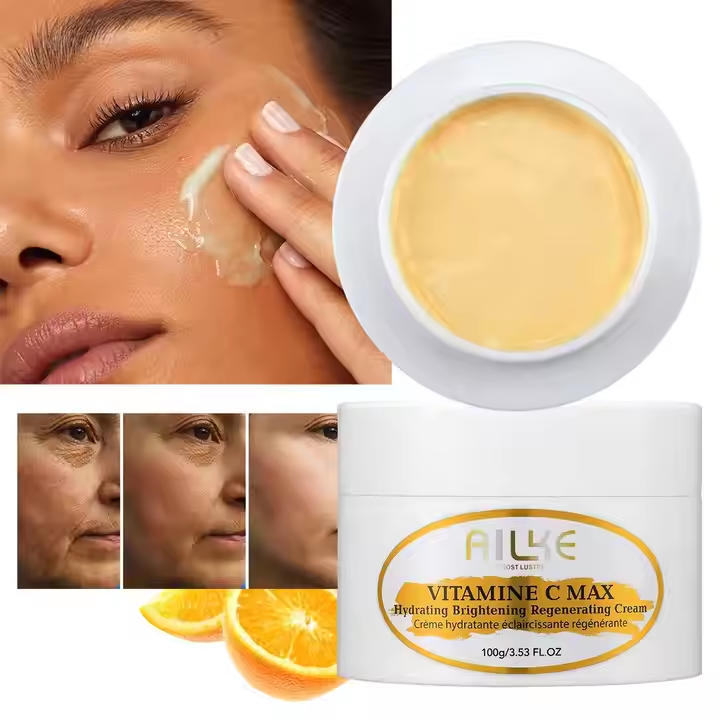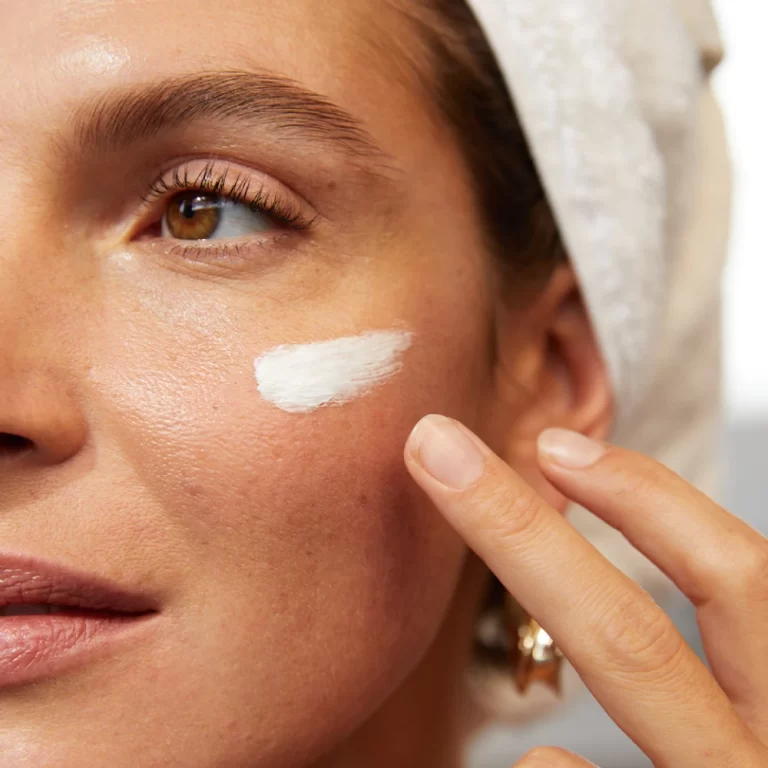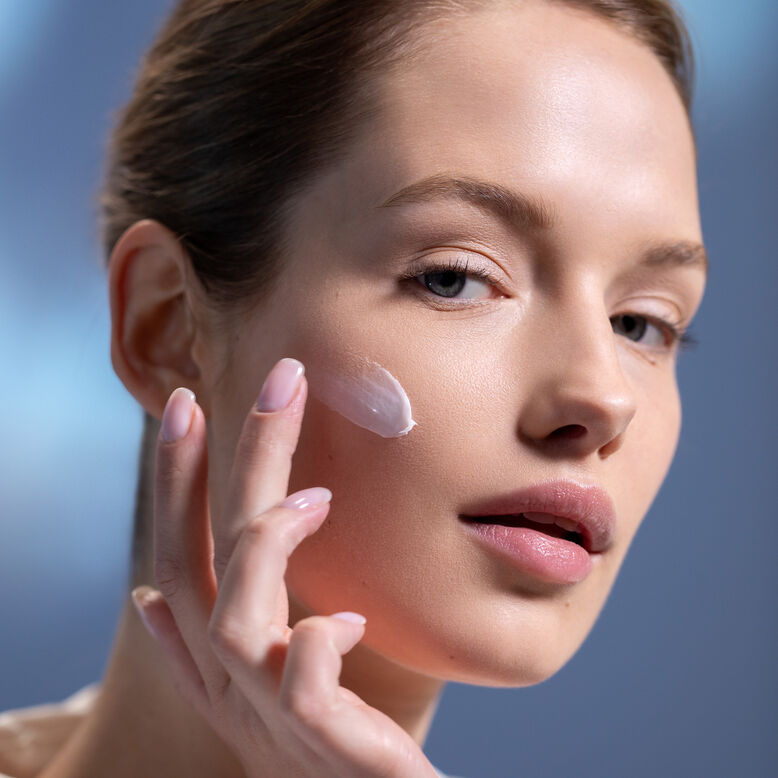
Best Face Cream for Wrinkles: Turn Back the Clock
Introduction: Understanding Wrinkles and Their Causes
Wrinkles, those telltale signs of aging, have long been a concern for many. These lines and creases that appear on the skin result from a combination of factors, both internal and external. As people age, the skin naturally loses elasticity and becomes less capable of retaining moisture. This process leads to the formation of fine lines and deeper wrinkles. External factors such as sun exposure, pollution, and lifestyle choices can accelerate this process. UV rays from the sun cause significant damage to the skin’s collagen and elastin fibers, leading to premature aging.Discover the best face cream for wrinkles that hydrate and rejuvenate your skin, revealing a youthful glow and smoother texture.
Smoking and poor diet also contribute to the breakdown of skin-supporting proteins. Repetitive facial expressions, while a natural part of life, can eventually lead to the formation of expression lines. Moreover, genetics play a role in how quickly and severely wrinkles appear. Understanding these factors helps in choosing the right face cream to combat wrinkles effectively. The good news is that with the right products and consistent care, it’s possible to minimize the appearance of wrinkles and maintain youthful-looking skin. This guide will explore the best face creams for wrinkles, their key ingredients, and how to incorporate them into an effective skincare routine.
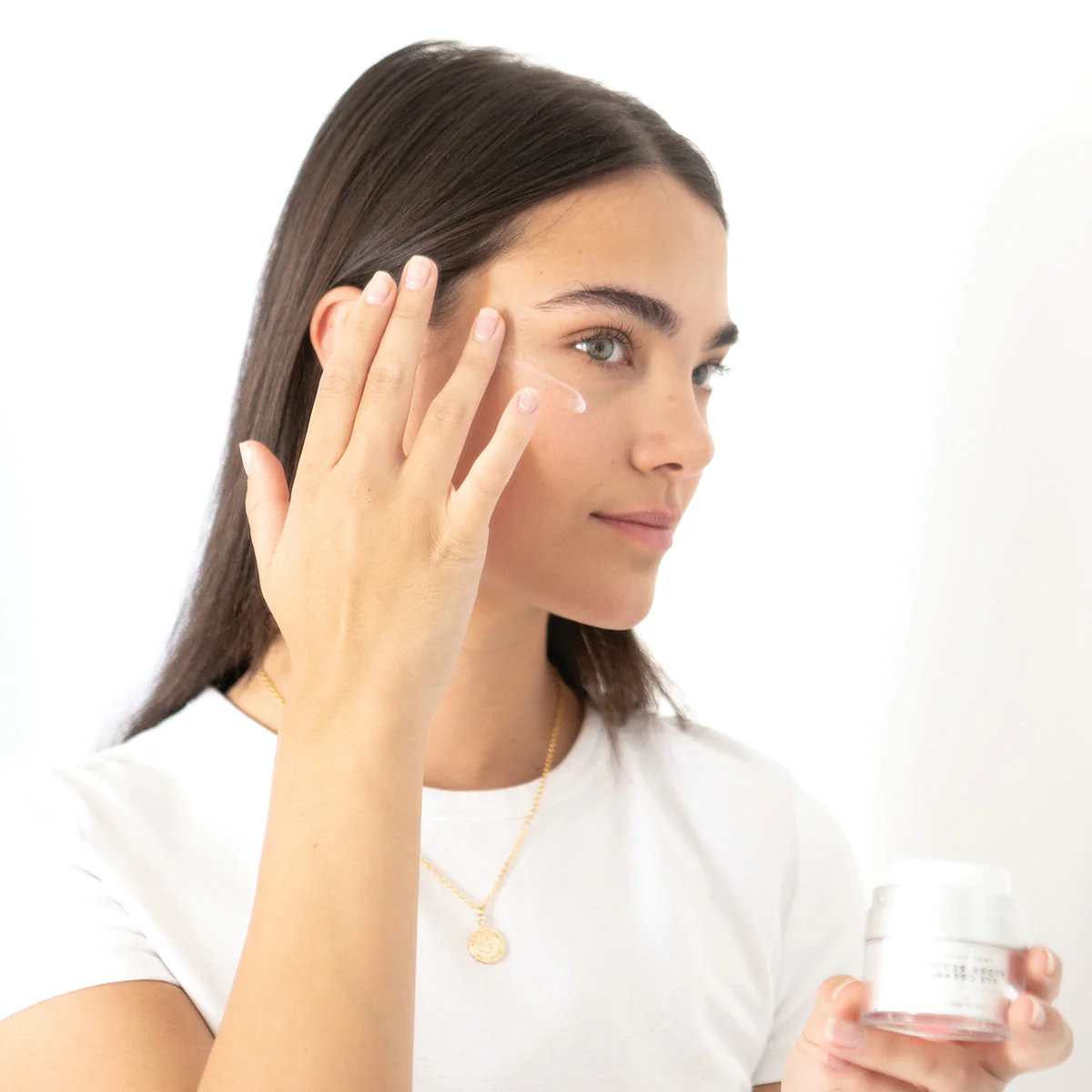
Key Ingredients in Anti-Wrinkle Face Creams
The effectiveness of face creams for wrinkles largely depends on their ingredients. Retinoids, derived from Vitamin A, stand out as one of the most potent anti-aging ingredients. They work by increasing cell turnover and stimulating collagen production, which helps reduce the appearance of fine lines and wrinkles. Peptides, another crucial ingredient, are short chains of amino acids that act as building blocks for proteins like collagen and elastin. They help firm the skin and improve its texture. Antioxidants such as Vitamins C and E protect the skin from free radical damage and can help brighten the complexion.
Hyaluronic acid, a powerful humectant, attracts and retains moisture in the skin, plumping up fine lines and wrinkles. Niacinamide, a form of Vitamin B3, improves skin elasticity and helps even out skin tone. Alpha-hydroxy acids (AHAs) and beta-hydroxy acids (BHAs) exfoliate the skin, promoting cell renewal and improving the effectiveness of other ingredients. Ceramides, naturally occurring lipids in the skin, help strengthen the skin barrier and prevent moisture loss. Some creams also include growth factors, which stimulate the production of collagen and elastin. When choosing a face cream for wrinkles, look for products that combine several of these key ingredients for maximum effectiveness.
Best Face Creams for Deep Wrinkles
For those battling deep wrinkles, certain face creams stand out for their potent formulations. The Neutrogena Rapid Wrinkle Repair Night Moisturizer tops many lists with its Retinol SA formula. This cream accelerates cell turnover and boosts collagen production, visibly reducing deep wrinkles over time. Another powerful option is the La Roche-Posay Redermic R Anti-Aging Concentrate Intensive. It combines pure retinol with a gentler derivative to target deep wrinkles while minimizing irritation. For a luxury option, the La Mer Crème de la Mer offers intense hydration and skin-renewing properties. Its patented Miracle Broth™ ingredient helps soften the appearance of deep lines.
The Olay Regenerist Micro-Sculpting Cream provides a more affordable yet effective solution. Its formula includes peptides and niacinamide to plump and firm the skin. For those seeking a natural approach, the Juice Beauty Stem Cellular Anti-Wrinkle Moisturizer uses plant stem cells and Vitamin C to combat deep wrinkles. These creams typically show results with consistent use over several weeks or months. Remember, deep wrinkles take time to form, so patience is key when working to reduce their appearance.
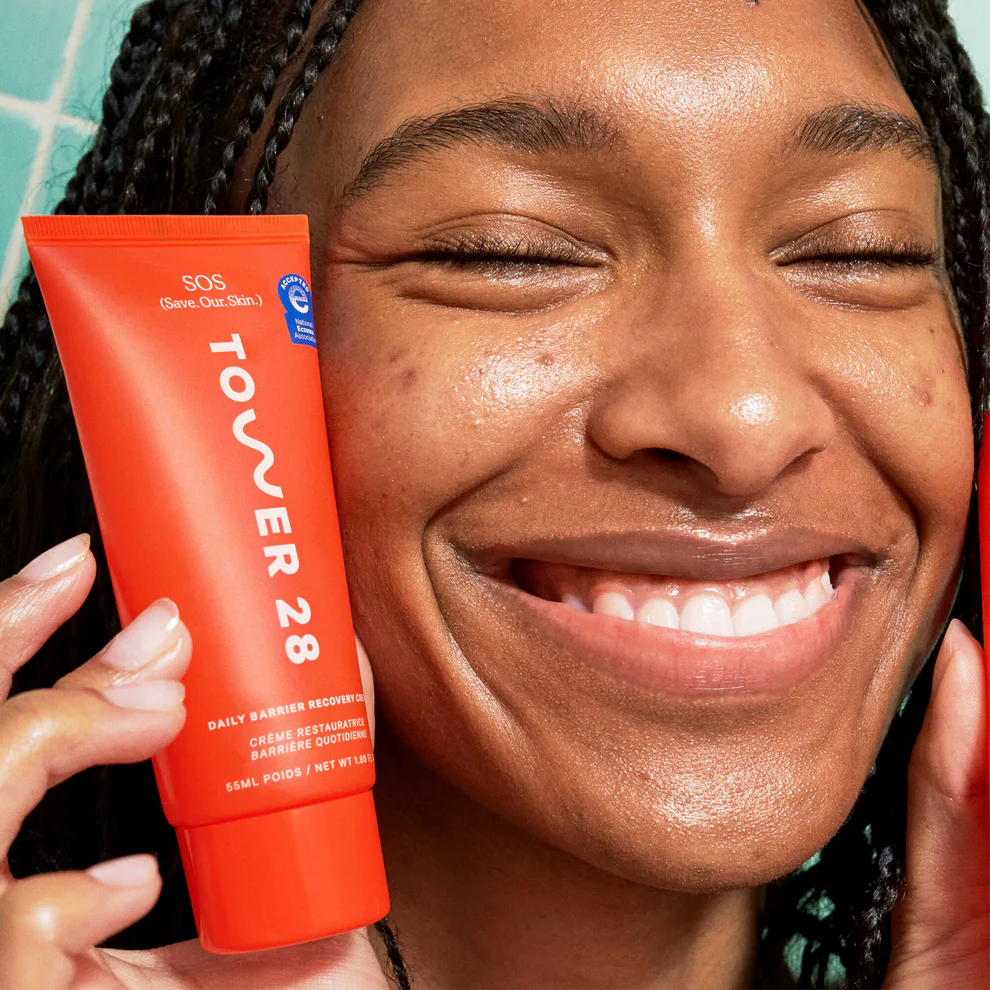
Face Creams for Fine Lines and Prevention
While deep wrinkles require intensive treatment, fine lines benefit from preventive care and targeted ingredients. The Estée Lauder Advanced Night Repair Synchronized Multi-Recovery Complex stands out for its ability to address fine lines and prevent future wrinkles. Its formula includes hyaluronic acid and antioxidants to hydrate and protect the skin. Another excellent option is the Drunk Elephant Protini Polypeptide Cream. This protein-rich moisturizer strengthens the skin and improves its resilience, helping to prevent the formation of fine lines.
For those with sensitive skin, the First Aid Beauty Ultra Repair Cream provides gentle yet effective hydration, helping to plump fine lines and prevent their deepening. The Kiehl’s Powerful-Strength Line-Reducing Concentrate, with its high concentration of Vitamin C, brightens the skin and helps prevent the formation of new lines. The Origins Plantscription SPF 25 Power Anti-Aging Cream offers both treatment and prevention, with its blend of anti-aging plant extracts and sun protection. These creams work best when used consistently as part of a daily skincare routine. They not only address existing fine lines but also help fortify the skin against future signs of aging. Remember, prevention is often easier than treatment, so starting an anti-aging routine early can pay off in the long run.
Incorporating Anti-Wrinkle Creams into Your Skincare Routine
To maximize the benefits of face creams for wrinkles, proper incorporation into a skincare routine is crucial. Start with a gentle cleanser to remove impurities without stripping the skin. Follow with a toner to balance the skin’s pH and prepare it for subsequent products. If using a serum, apply it before the face cream. Serums often contain concentrated active ingredients that penetrate deeply into the skin. Next, apply the anti-wrinkle face cream. For daytime use, follow with a broad-spectrum sunscreen to protect against UV damage.
At night, the anti-wrinkle cream can be the final step in the routine, allowing it to work uninterrupted while you sleep. Some anti-wrinkle creams, particularly those containing retinoids, are best used at night due to increased sun sensitivity. For these products, start with application every other night and gradually increase frequency as tolerated. Remember to apply creams to both the face and neck, as the neck often shows signs of aging too. Be gentle when applying products, especially around the delicate eye area. Patting or pressing the product into the skin can be more effective and less damaging than rubbing. Consistency is key with anti-wrinkle creams, so aim to use them daily for best results.
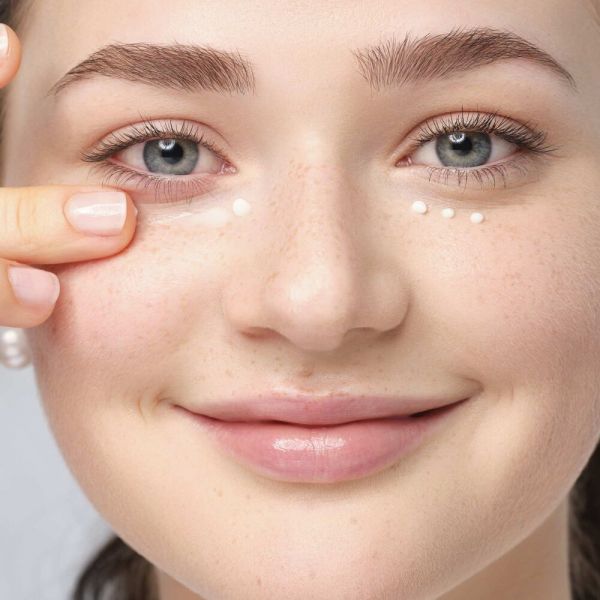
The Role of Diet and Lifestyle in Wrinkle Prevention
While face creams play a crucial role in combating wrinkles, diet and lifestyle factors significantly impact skin aging. A diet rich in antioxidants helps protect the skin from free radical damage. Foods high in Vitamin C, such as citrus fruits and bell peppers, support collagen production. Omega-3 fatty acids, found in fatty fish and nuts, help maintain skin elasticity. Staying hydrated by drinking plenty of water keeps the skin plump and helps flush out toxins. Limiting sugar intake can prevent glycation, a process that damages collagen and elastin fibers.
Avoiding excessive alcohol consumption and quitting smoking can dramatically improve skin health and reduce premature aging. Regular exercise boosts circulation, delivering nutrients to the skin and promoting a healthy glow. Getting adequate sleep allows the skin time to repair and regenerate. Stress management techniques like meditation or yoga can help reduce cortisol levels, which can break down collagen when chronically elevated. Sun protection remains one of the most critical factors in preventing wrinkles. Wearing broad-spectrum sunscreen daily, even on cloudy days, shields the skin from harmful UV rays. Additionally, wearing protective clothing and seeking shade during peak sun hours further safeguards the skin from premature aging.
Common Mistakes to Avoid When Using Anti-Wrinkle Creams
Even with the best face creams for wrinkles, certain mistakes can hinder their effectiveness. Overusing products ranks as a common error. Applying too much cream doesn’t increase its benefits and can lead to clogged pores or irritation. Instead, follow the recommended amount, usually a pea-sized portion for the entire face. Another mistake involves expecting instant results. Most anti-wrinkle creams require consistent use for several weeks or months before noticeable improvements occur. Patience and persistence are key. Neglecting to patch test new products can lead to adverse reactions, especially with potent anti-aging ingredients.
Always test new creams on a small area before applying to the entire face. Some people make the mistake of using multiple anti-aging products with active ingredients simultaneously, which can irritate the skin. Instead, introduce new products gradually and avoid layering products with similar active ingredients. Forgetting to apply sunscreen after daytime use of anti-wrinkle creams, especially those containing retinoids or AHAs, can increase sun sensitivity and negate the cream’s benefits. Lastly, neglecting the neck and décolletage area when applying face creams leaves these areas vulnerable to premature aging. Remember to extend application to these often-overlooked areas for comprehensive anti-aging care.
The Science Behind Anti-Wrinkle Creams: How They Work
Understanding the science behind anti-wrinkle creams helps in appreciating their effectiveness. These creams work through various mechanisms to combat signs of aging. Retinoids, for instance, work at the cellular level by increasing cell turnover and stimulating collagen production. This process brings fresher, younger cells to the surface faster and helps rebuild the skin’s supportive structure. Peptides act as messengers, signaling to skin cells to produce more collagen and other proteins essential for skin firmness. Antioxidants in these creams neutralize free radicals, unstable molecules that damage skin cells and accelerate aging.
Hyaluronic acid works by attracting and binding water molecules, helping to plump the skin and reduce the appearance of fine lines. AHAs and BHAs exfoliate the skin, removing dead skin cells and promoting cell renewal. This exfoliation not only improves skin texture but also allows other ingredients to penetrate more effectively. Growth factors in some advanced formulations mimic the body’s natural growth factors, stimulating the production of collagen and elastin. The effectiveness of these ingredients often depends on their concentration and formulation. Higher concentrations generally yield more noticeable results, but may also increase the risk of irritation. The delivery system of the cream also plays a role in its effectiveness, with some advanced formulations using technologies that enhance ingredient penetration and stability.
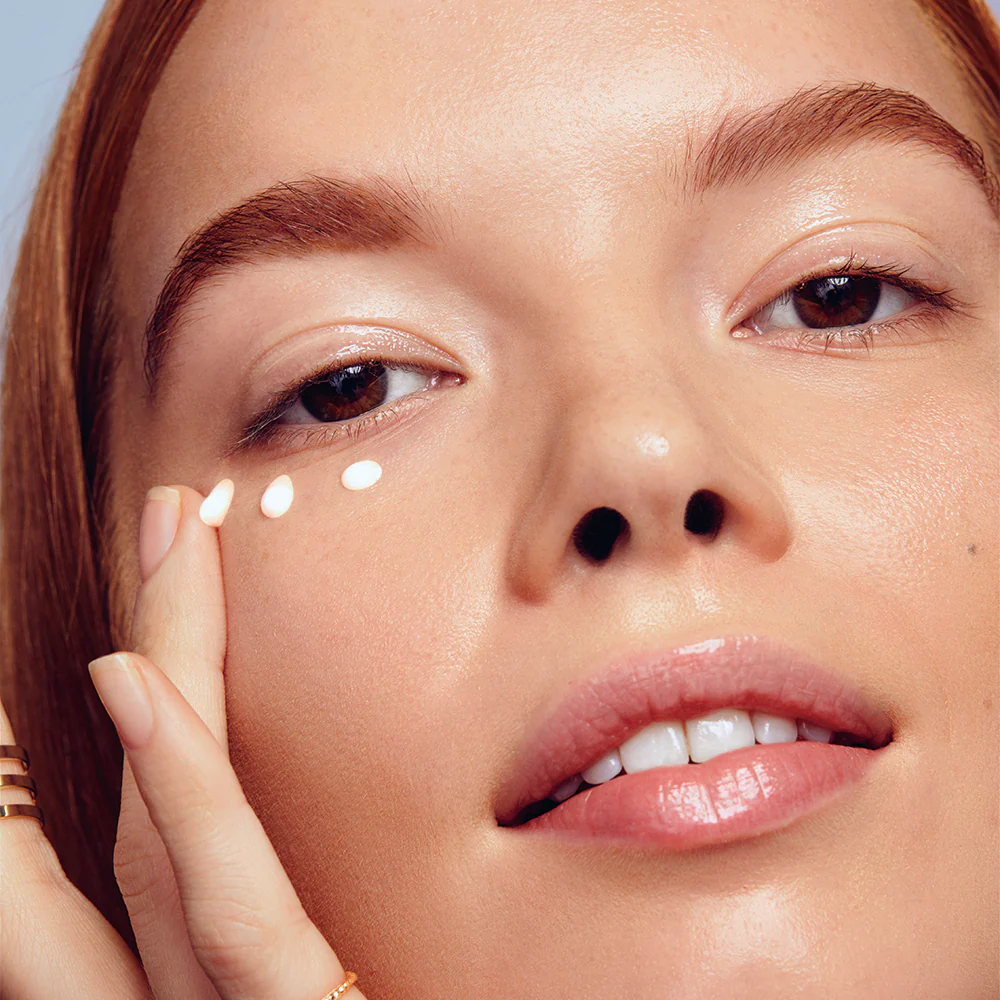
Future Trends in Anti-Wrinkle Skincare
The field of anti-wrinkle skincare continues to evolve, with exciting innovations on the horizon. One emerging trend focuses on personalized skincare. Advanced diagnostic tools and AI technology allow for the creation of custom-blended creams tailored to individual skin needs and concerns. Another promising area involves the use of stem cell technology in skincare. Plant-based and lab-grown human stem cells show potential in rejuvenating aging skin cells. Microbiome-friendly formulations represent another frontier in anti-aging skincare. These products aim to support the skin’s natural bacterial balance, which plays a crucial role in skin health and aging.
Sustainable and clean beauty trends are influencing anti-wrinkle product development, with brands focusing on natural, eco-friendly ingredients and packaging. Adaptogenic ingredients, which help the skin adapt to stress and environmental factors, are gaining popularity in anti-aging formulations. Advances in ingredient delivery systems, such as nanoparticle technology, promise to enhance the effectiveness of active ingredients by improving their penetration and stability. As research continues, expect to see more targeted, efficient, and multifunctional anti-wrinkle creams hitting the market. These innovations aim to provide more effective solutions for combating wrinkles and other signs of aging.
Conclusion: Choosing the Right Anti-Wrinkle Cream for You
Selecting the best face cream for wrinkles ultimately depends on individual skin type, concerns, and preferences. Consider factors such as skin sensitivity, the depth of wrinkles, and any additional skin issues when choosing a product. For those new to anti-aging skincare, starting with a gentler formulation and gradually working up to more potent products can help minimize irritation. Remember that consistency is key in any anti-aging routine. Even the most effective cream requires regular use over time to show significant results.
While face creams play a crucial role in combating wrinkles, they work best as part of a comprehensive approach to skin health. This approach includes a balanced diet, adequate hydration, sun protection, and a consistent skincare routine. Don’t hesitate to consult with a dermatologist for personalized advice, especially when dealing with deep wrinkles or sensitive skin. With the right combination of products and lifestyle habits, it’s possible to minimize the appearance of wrinkles and maintain youthful-looking skin. Embrace the journey towards healthier, more radiant skin, and remember that aging is a natural process that can be managed but not entirely prevented.
